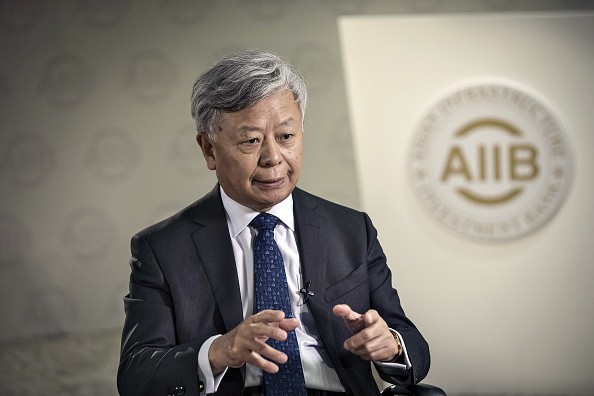China's development banks have $3 billion worth of projects available in several countries but it remains a question if the banks will show the same support for the country's One Belt, One Road initiative, a program aimed at expanding trade between Asia and Europe using the ancient Silk Road that linked China to the West.
In an article by VOAnews, experts tried to examine the extent of influence of China's new banks: the New Development Bank and the Asian Infrastructure Investment Bank (AIIB).
Based in Shanghai, the New Development Bank was created by China and countries that belong to the group BRICS. Its members are Brazil, Russia, India, South Africa and China. According to the bank, their members have equal voting power.
On the other hand, the Beijing-based AIIB is composed of fifty-six member countries, with China having the largest voting share. The three non-Asian members of the bank include Britain, France and Germany.
According to Jin Liqun, AIIB president, the United States could still join the bank although former President Barack Obama had declined the offer when AIIB was being set up in 2015.
"Setting up AIIB and showing that Beijing intends to play by the established rules has helped China."
Jacob Kirkegaard from the Peterson Institute of International Economics, in Washington, D.C., said.
Kirkegaard, however, added that development banks are mostly useful for political and diplomatic purposes but they can do nothing to help China in competing for business with American firms.
Julian Evans-Pritchard, an economist for the research company Capital Economics, said: "China has gained in terms of soft power because it could bring several European powers on the table through AIIB."
He added that this could enhance cooperation between China and European countries.
Recently, the AIIB has approved a loan to finance the building of the Trans-Anatolian gas pipeline, which will transport natural gas from Azerbaijan to Europe. The project is seen to complement China's One Belt, One Road plan, to connect Europe with China through Central Asia.
On U.S. Membership in AIIB
Jin said recently that the U.S., under the administration of President Donald Trump, may join the AIIB.
"I was told that many in his team have an opinion that Obama was not right not to join the AIIB, especially after Canada joined, which was a very loud endorsement of the bank," Jin said during a briefing with the Chinese media.
But some observers doubt if the U.S. would join the bank, as this would add credibility to the AIIB.
According to Jin, the U.S. initially rejected the bank because it was perceived to be a rival with the two established banks such as the World Bank and the International Monetary Fund.
But according to Lourdes S. Casanova from the Emerging Markets Institute at Cornell University in New York, the United States will not join the bank because it considers investments in public works projects as important, adding that the U.S. has been critical of multilateral organizations.
Development Bank Projects
The AIIB has released about $1.7 billion for nine projects last year. These include funding for road construction in Tajikistan and Pakistan, a hydroelectric power in Pakistan and construction of port in Oman.
But experts noted that it would have been better if the AIIB itself had identified the projects as all the projects that it has funded have already been studied and approved by the World Bank and the Asian Development Bank.
Meanwhile, Evans-Pritchard said that not all projects are good investment and some projects have encountered local opposition.
"There is a risk of running protests in several countries where projects are planned," Evans-Pritchard said. "There is a protest against an industrial zone in Sri Lanka, which is part of the OBOR program."
Some protectionist governments in Europe may also block the One Belt, One Road initiative, as they are not willing to strengthen ties with other countries, the report said.






















